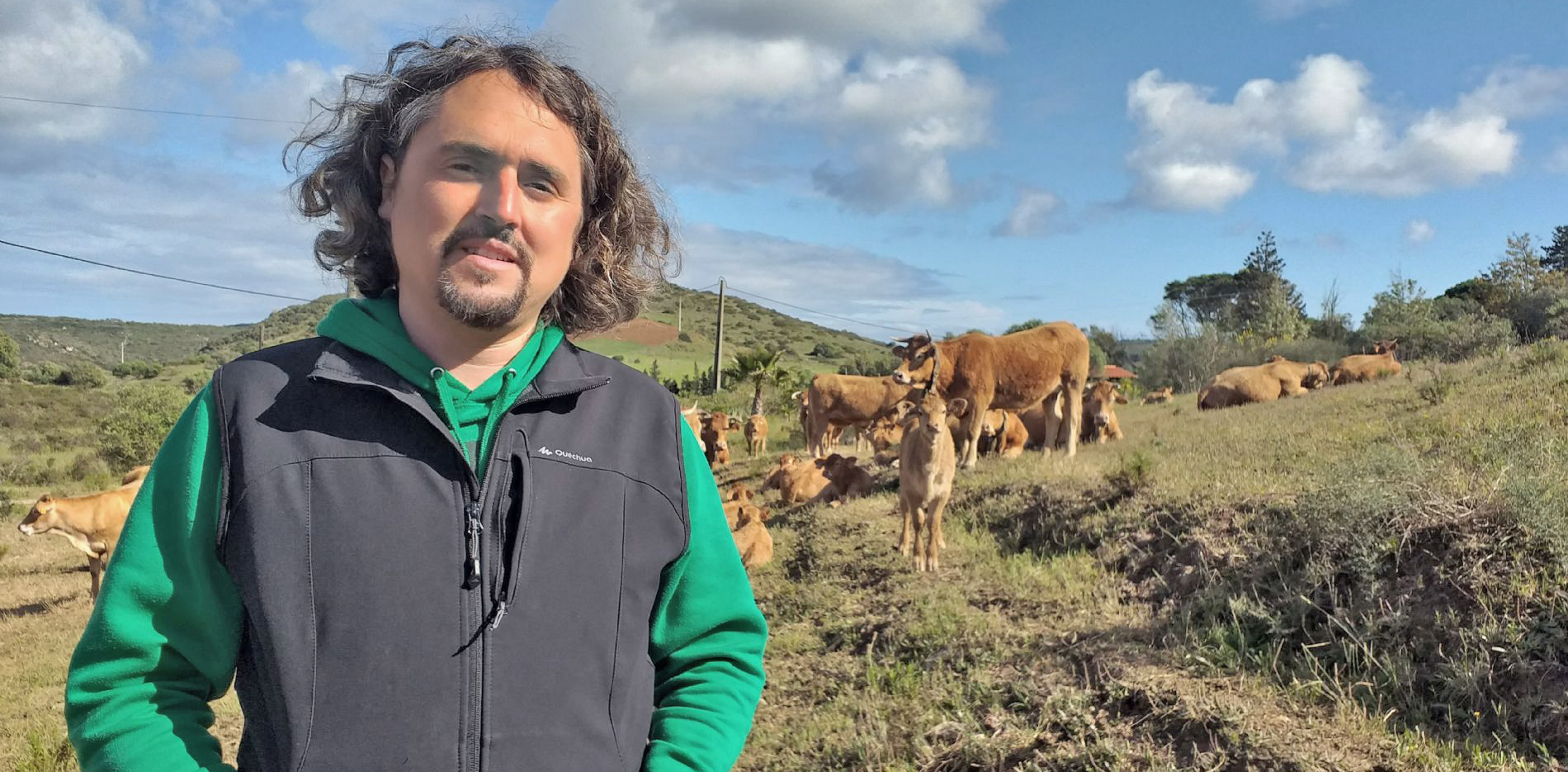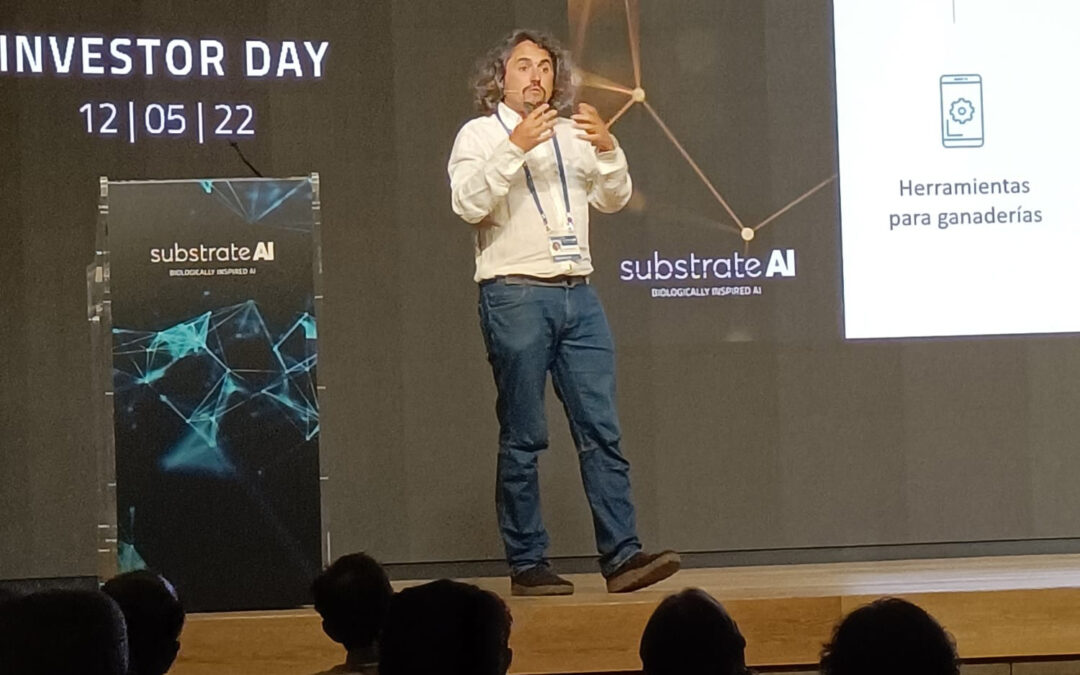"Implementing PAM can improve livestock farm sustainability by up to 30%."
For some time now, technology has been making its way into the management of our dairy farms. The objectives pursued by its implementation are to optimize the quality of life of the farmer and his animals, prevent the appearance of diseases, or treat them, in the cattle herd and thus increase the profitability of the company. All this must be combined with the precepts set by Brussels, among which the reduction in the use of antibiotics and the promotion of sustainability stand out. Boalvet has managed to combine all these elements through the Precision Animal Milking (PAM) tool, which Álvaro Fernández-Blanco, its CEO and manager, tells us about in the following lines.
GAN. Tell us, what is Boalvet and how was the project born?
ÁLVARO FERNÁNDEZ-BLANCO. Boalvet is an Agritech veterinary services company specialized in sustainability, artificial intelligence (AI) and veterinary phytotherapy. It was born because we detected that there are a large number of livestock farmers who have a great concern for the production of more sustainable and higher quality food. The concept emerged in 2015 as a project of agro-ecological sustainability and R+D+i related to the use of medicinal plants in livestock (phytotherapy).
In 2018, Boalvet initiated the PAM (Precision Animal Milking) project together with Substrate AI, for the creation of a health management system on dairy farms with AI.
Three years later, Substrate AI acquires Boalvet's 90% to be the vehicle for the growth of its livestock business with AI based on the use of medicinal plants, making Boalvet AI one of the leading companies in "Reinforcement Learning" technology applied to livestock and R+D+i.
What is Precision Animal Milking (PAM) and how does it work?
A. F-B. PAM Precision Animal Milking is a monitoring tool for dairy farms using artificial intelligence, which aims to automatically make decisions to improve animal health, while optimizing the quality and quantity of milk produced, reducing costs and improving farm profitability, through the use of phytotherapy.
Our technology is novel in that it requires 95% less data to make decisions in non-stationary environments. This is crucial for two fundamental reasons. Firstly, it makes it easier for us to generate recommendations in those farms where data collection is scarce, thus being able to offer results in most dairy farms without the need for a high degree of automation or animal monitoring. On the other hand, and in line with Boalvet AI's philosophy, the development of the tool itself consumes far fewer resources, which considerably reduces the environmental impact of developing this type of tool. Therefore, PAM is modular and scalable.
This patented technology, called Reforcing Learning Bio-Inspired, is based on emotions. It uses biologically inspired algorithms that, through the use of key indicators, can track animals and offer different solutions to improve animal health and productivity.
It is also the first tool that uses artificial intelligence for the application of phytotherapy. This places us as a leading company in the application of this technology in the field of animal health and sustainability.

What are the benefits for the farmer?
A. F-B. In fact, there are numerous advantages for the dairy farmer. The first and most outstanding of them is that its implementation can improve the sustainability of dairy farms up to 30%, which is crucial in these times of instability and rising prices of raw materials. In addition, the tool enables, by using phytotherapy, an improvement in animal health by reducing the prevalence of those processes that most concern our farmers and ranchers.
Consequently, we observe an improvement in animal health that is accompanied by a decrease in the use of drugs created ex novo in the laboratory, reducing or eliminating the loss of milk derived from the safety times when some of these drugs are used. It offers the farmer the peace of mind of knowing that he is not selling milk that contains traces of residues that could reach the final consumer or the environment, thus increasing food biosafety.
Thanks to the implementation of phytotherapy as a basis for health improvement, we offer an alternative to the restricted use of laboratory antibiotics, which we hope will have a direct impact on bacterial activity related to expressing resistance to these simple antimicrobials. They are already the most complex problem in the field of integrated global public health, also called "One Health".
The recommendations offered by PAM are also aimed at improving milk quality, which offers added value for the industry. We highlight the possibility offered by the tool to have greater control over the animals and productions, having the key information at our disposal in our portable devices. Simply by receiving alerts that allow us to detect deviations of the parameters in real time at any time.
In short, we act to improve animal health and, consequently, business profitability. We know how to improve the quality of life of our farmers, facilitating animal handling through the application of 6.0 technology. At the same time, we promote sustainability and focus on the biosecurity of animal foodstuffs.
GAN: What are the properties of veterinary phytotherapy on dairy farms? Can you give us some examples of its benefits in combination with artificial intelligence?
A. F-B. The use of plants for therapeutic purposes dates back to the origin of animal species in their interaction with the plant kingdom and microorganisms. All living beings on the planet have been using them throughout history to reestablish equilibrium when it has been altered by different situations.
Thanks to new technologies and scientific studies, numerous evidences are proving their efficacy and suitability to maintain health in humans and animals. Through the use of artificial intelligence, we recommend the use of botanical complementary feeds or health products in the diet. All based on standardized plant extracts. We can bring the animals to an optimal health-productive status every day in various aspects such as udder health, intestinal or metabolic well-being (ketosis), among others. We achieve this by sending precise recommendations in a batch or individualized manner. Based on certain "key indicators" we act in the early and acute attention of the main conditions affecting dairy farms.
Understanding prevention as a basic health principle, we also focus on the early diagnosis of deviations to avoid the clinical manifestation or chronification of processes. The lack of timely attention leads to great productive losses in dairy farms.
Through the monitored use of botanical extracts, we achieve a substantial reduction in the need for the use of "laboratory drugs". This generates numerous benefits such as the reduction of bureaucracy, waste in water and soil or the optimization of production costs.
One of the great limitations when it comes to the application of plant extracts in livestock farms is the difficulty of finding veterinarians who apply these therapeutic alternatives near the farms where we want to implement them. The number of professionals who know the properties of botanical active principles of veterinary interest is really scarce. For this reason, we believe that the specialized training we are going to give in autumn on sustainability, artificial intelligence and phytotherapy is essential. In this way, we are committed to democratize access to the phytotherapy kit on dairy farms.
GAN: How can those interested in PAM contact you?
A. F-B. You can contact us by e-mail [email protected] or by phone at 665 477 773. Also through our web site www.boalvet.ai or through any of our social media profiles (Linkedin, Facebook, Instagram or Twitter). We will be happy to assist you and support you on your way to move forward and modernize. The Boalvet team is a good partner on this path towards a more sustainable tomorrow.
